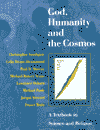The Rise of DarwinismCharles Darwin (1809-82) was not the first naturalist to think that organic evolution might have occurred (see important evolutionists before Darwin). Darwin published On the Origin of Species by Means of Natural Selection in November
1859, by which time he had been developing the theory of evolution by natural
selection for at least 22 years. For an account of this development, and the
fluctuations in Darwin’s own religious belief, see the biography by Desmond and
Moore Darwin’s challenge to theological positionswas a profound one, more subtle than is implied in the caricature - Darwin v. Christianity.
Email
link | Feedback | Contributed by: Dr.
Christopher Southgate |





